
Blog Post
Mindful Hydration: Staying Hydrated Throughout the Day for Optimal Performance
Xavier Santos • December 30, 2024
Hydration plays a crucial role in maintaining overall health and well-being, particularly for individuals with active lifestyles and fitness enthusiasts. Proper hydration is essential for regulating body temperature, supporting nutrient transport, lubricating joints, and facilitating cellular function. In this blog post, we’ll explore the importance of mindful hydration, discuss the signs of dehydration, and provide practical tips for staying adequately hydrated throughout the day to optimize performance and enhance overall health.
Understanding Hydration:
Water is the primary component of the human body, accounting for approximately 60% of total body weight. It serves as a fundamental solvent, participating in numerous biochemical reactions essential for life. Electrolytes, such as sodium, potassium, magnesium, and chloride, are dissolved in water and play key roles in maintaining fluid balance, nerve function, and muscle contractions.
The body continually loses water through various processes, including breathing, sweating, urination, and bowel movements. To prevent dehydration and maintain proper hydration status, it’s crucial to replenish lost fluids by drinking an adequate amount of water throughout the day.
Signs of Dehydration:
Dehydration occurs when the body loses more fluids than it takes in, leading to an imbalance in fluid levels and electrolyte concentrations. Mild dehydration can cause symptoms such as thirst, dry mouth, dark urine, fatigue, headache, and dizziness. Severe dehydration may manifest as rapid heartbeat, confusion, fainting, and decreased urine output.
Chronic dehydration can have detrimental effects on physical and cognitive performance, impairing endurance, strength, concentration, and mood. Therefore, it’s essential to prioritize hydration and adopt mindful habits to ensure adequate fluid intake throughout the day.
Practical Tips for Mindful Hydration:
1. Start your day with water: Begin each morning by drinking a glass of water upon waking to rehydrate your body after overnight fasting.
2. Carry a reusable water bottle: Keep a water bottle with you throughout the day as a visual reminder to drink regularly and stay hydrated.
3. Monitor urine color: Pay attention to the color of your urine as a simple indicator of hydration status. Aim for pale yellow urine, indicating adequate hydration.
4. Drink before, during, and after exercise: Hydrate before, during, and after exercise to replace fluids lost through sweat and maintain optimal performance and recovery.
5. Incorporate hydrating foods: Consume hydrating foods such as fruits (e.g., watermelon, oranges), vegetables (e.g., cucumber, lettuce), and soups to increase overall fluid intake.
6. Set hydration reminders: Use smartphone apps or alarms to remind yourself to drink water regularly, especially if you tend to forget.
7. Experiment with flavored water: Infuse water with natural flavors such as lemon, cucumber, or mint to enhance taste and encourage hydration.
8. Avoid excessive caffeine and alcohol: Limit consumption of caffeinated beverages and alcohol, as they can have diuretic effects and contribute to dehydration.
9. Listen to your body: Pay attention to thirst cues and drink water whenever you feel thirsty, as thirst is the body’s natural signal for fluid replenishment.
10. Hydrate mindfully: Take sips of water slowly and mindfully throughout the day, rather than guzzling large quantities all at once, to allow for better absorption and utilization by the body.
Mindful hydration is essential for maintaining optimal health, performance, and well-being. By adopting mindful habits and prioritizing hydration throughout the day, you can support physical and cognitive function, enhance exercise performance, and promote overall vitality. Remember to listen to your body, monitor hydration status, and make hydration a conscious part of your daily routine for lasting health and wellness.
Best regards,
Xavier Santos, Founder of Athletixism
Share
Tweet
Share
Mail

Fitness Challenges: Joining Online Challenges and Community Events to Stay Motivated and Accountable
By Xavier Santos
•
March 10, 2025
Embarking on a fitness journey can be both exciting and challenging. While setting goals and creating a workout routine are essential steps, staying motivated and accountable can sometimes be a struggle. This is where fitness challenges come into play. Whether you’re a seasoned athlete or just starting out, joining online challenges and community events can provide the extra motivation and support you need to stay on track and reach your fitness goals. In this blog post, we’ll explore the benefits of participating in fitness challenges and how they can help you stay motivated, accountable, and engaged in your fitness journey. 1. Setting Goals and Creating Accountability: • Fitness challenges often revolve around specific goals, such as completing a certain number of workouts, improving endurance or strength, or adopting healthier habits like drinking more water or getting more sleep. • By participating in a challenge, you’re committing to these goals and creating a sense of accountability both to yourself and to the community. Knowing that others are counting on you to show up and put in the effort can be a powerful motivator to stay consistent and committed to your fitness routine. 2. Building a Supportive Community: • One of the most significant benefits of joining a fitness challenge is the sense of community and support it provides. Whether it’s through online forums, social media groups, or in-person meetups, connecting with others who share similar goals and experiences can be incredibly empowering. • Being part of a community allows you to celebrate victories, share struggles, and exchange tips and advice with like-minded individuals who understand the challenges of the fitness journey. This sense of camaraderie can boost morale, provide encouragement during tough times, and help you stay motivated when the going gets tough. 3. Fostering Healthy Competition: • Healthy competition can be a powerful motivator to push yourself beyond your comfort zone and strive for new heights. Fitness challenges often include elements of friendly competition, such as leaderboards, progress tracking, or rewards for achieving milestones. • While the primary goal of a fitness challenge is personal improvement, a little friendly competition can add an extra layer of excitement and motivation. Whether you’re vying for the top spot on the leaderboard or competing against your own personal best, the spirit of competition can inspire you to push harder and achieve more than you thought possible. 4. Providing Structure and Variety: • Many fitness challenges offer structured workout plans, nutrition guidelines, or daily prompts to keep participants engaged and on track. This can be especially helpful for those who struggle with consistency or are unsure where to start. • Additionally, challenges often incorporate a variety of activities and workouts to keep things interesting and prevent boredom. Whether it’s a themed workout challenge, a virtual race series, or a month-long yoga immersion, there’s something for everyone to enjoy and explore. 5. Celebrating Progress and Achievements: • Participating in a fitness challenge provides regular opportunities to celebrate your progress and achievements along the way. Whether it’s completing a tough workout, hitting a new personal record, or adopting a healthier habit, every small victory deserves recognition and celebration. • By acknowledging your progress and celebrating your achievements, you reinforce positive behaviors, boost self-confidence, and stay motivated to continue working towards your goals. Plus, sharing your successes with the community can inspire and motivate others to keep pushing towards their own goals. Fitness challenges offer a fun, supportive, and motivating way to stay engaged in your fitness journey and work towards your goals. By setting goals, building a supportive community, embracing healthy competition, and enjoying structured workouts and variety, you can stay motivated, accountable, and inspired to reach new heights in your fitness journey. So why not challenge yourself to join a fitness challenge today and experience the transformative power of community and accountability firsthand? Best regards, Xavier Santos, Founder of Athletixism

By Xavier Santos
•
March 3, 2025
Aging is a natural part of life, but it doesn’t mean that you have to slow down or compromise your quality of life. In fact, staying active and maintaining mobility is essential for overall health and well-being as you age. In this blog post, we’ll explore some effective strategies for healthy aging, focusing on maintaining fitness, mobility, and independence well into your golden years. 1. Stay Active: • Regular physical activity is crucial for healthy aging. Aim for at least 150 minutes of moderate-intensity aerobic activity or 75 minutes of vigorous-intensity aerobic activity each week, along with muscle-strengthening activities on two or more days per week. • Choose activities that you enjoy and that are suitable for your fitness level, whether it’s walking, swimming, cycling, or dancing. Incorporating variety into your routine can help keep things interesting and prevent boredom. 2. Focus on Strength and Balance: • Strength training exercises are essential for maintaining muscle mass, bone density, and functional strength as you age. Include exercises that target major muscle groups, such as squats, lunges, push-ups, and rows. • Balance exercises are also critical for preventing falls and maintaining mobility. Incorporate exercises like standing on one leg, heel-to-toe walks, and Tai Chi to improve balance and stability. 3. Prioritize Flexibility and Mobility: • Flexibility exercises can help maintain joint health and range of motion, reducing the risk of injury and stiffness. Incorporate stretches for all major muscle groups, holding each stretch for 15-30 seconds and repeating 2-4 times. • Mobility exercises, such as gentle yoga or Pilates movements, can help improve posture, coordination, and body awareness while reducing pain and discomfort associated with stiff joints. 4. Practice Good Nutrition: • A balanced diet is essential for overall health and well-being, especially as you age. Focus on eating a variety of nutrient-rich foods, including fruits, vegetables, whole grains, lean proteins, and healthy fats. • Pay attention to hydration, as older adults may be at increased risk of dehydration. Aim to drink plenty of water throughout the day and limit the consumption of sugary beverages and alcohol. 5. Get Regular Check-Ups: • Regular medical check-ups are essential for monitoring your health and catching any potential issues early. Make sure to schedule regular appointments with your healthcare provider for preventive screenings, vaccinations, and management of chronic conditions. • Be proactive about discussing any concerns or changes in your health with your healthcare provider, including changes in mobility, pain, or energy levels. 6. Prioritize Mental and Emotional Well-Being: • Mental and emotional health are just as important as physical health for healthy aging. Stay socially connected with friends and family, engage in activities that bring you joy and fulfillment, and practice stress management techniques such as meditation or mindfulness. • Seek professional help if you’re struggling with mental health issues such as depression or anxiety, as these can impact your overall well-being and quality of life. Healthy aging is within reach for everyone with the right approach and mindset. By staying active, prioritizing strength, balance, flexibility, and mobility, and adopting a balanced diet and lifestyle, you can maintain your health, independence, and vitality as you age. Remember that it’s never too late to start taking care of your body and investing in your well-being, so why not start today? Best regards, Xavier Santos, Founder of Athletixism
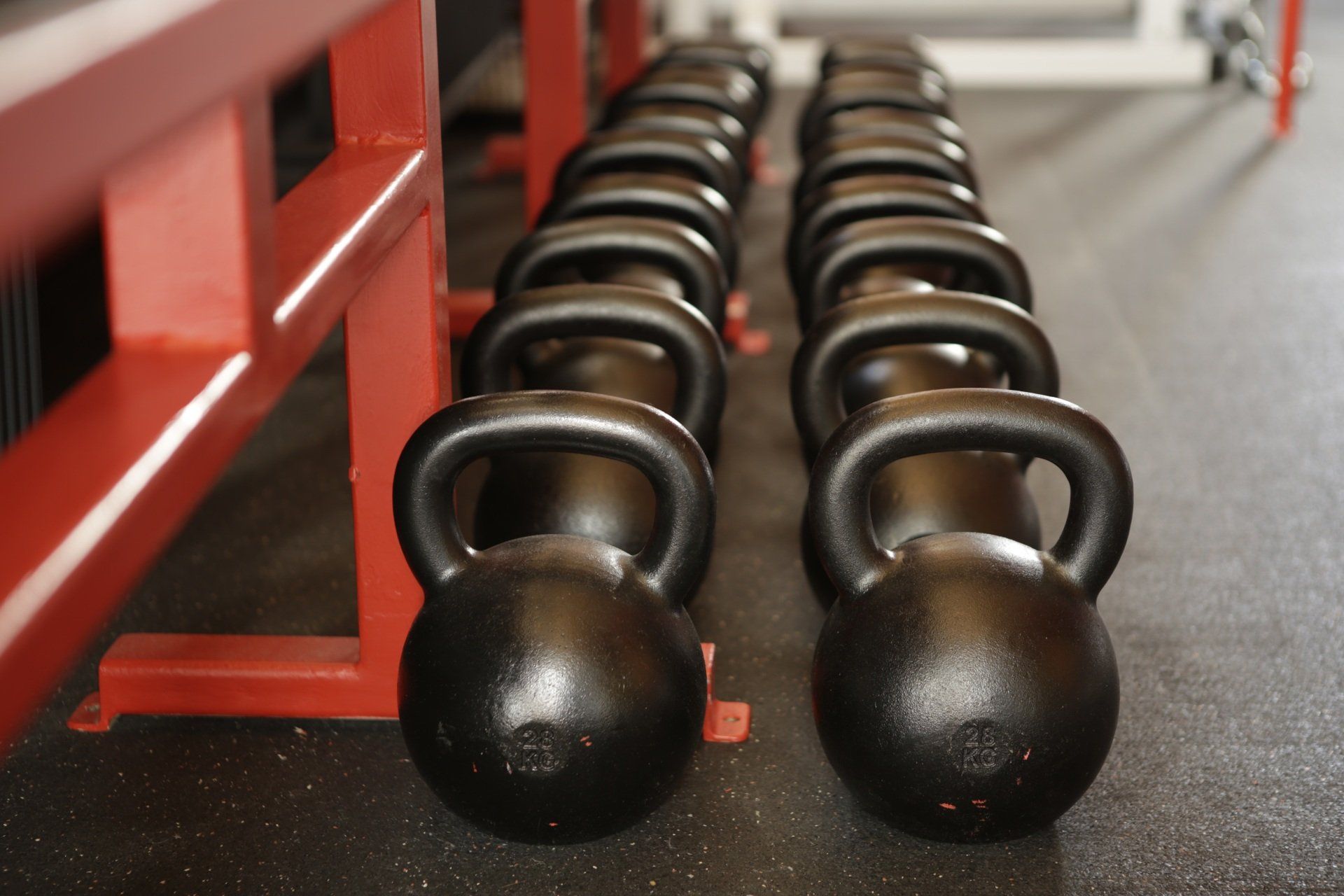
By Xavier Santos
•
February 24, 2025
As the fitness industry continues to evolve, new trends and fads emerge, promising innovative ways to achieve optimal health and fitness. From high-intensity workouts to wellness practices rooted in ancient traditions, there’s no shortage of options for those seeking to elevate their fitness routine. In this blog post, we’ll delve into some of the latest trends and fads in the world of fitness, exploring their benefits, potential drawbacks, and whether they’re worth incorporating into your regimen. 1. High-Intensity Interval Training (HIIT): • HIIT has gained popularity for its efficiency and effectiveness in burning calories and improving cardiovascular fitness. • Incorporating short bursts of intense exercise followed by brief rest periods, HIIT workouts can be done in a fraction of the time compared to traditional cardio workouts. • While HIIT offers numerous benefits, including increased metabolism and fat loss, it may not be suitable for everyone, especially those with certain health conditions or injuries. 2. Wearable Fitness Technology: • Wearable devices like fitness trackers and smartwatches have become ubiquitous, allowing users to monitor their activity levels, heart rate, sleep patterns, and more. • These devices provide valuable data to help individuals track their progress, set goals, and stay motivated to maintain an active lifestyle. • While wearable technology can be a useful tool for tracking fitness metrics, it’s essential to use it as a supplement to a well-rounded fitness program rather than relying solely on technology for motivation. 3. Functional Fitness: • Functional fitness focuses on exercises that mimic real-life movements and improve overall strength, stability, and mobility. • By targeting multiple muscle groups and enhancing coordination and balance, functional fitness workouts help individuals perform daily activities more efficiently and reduce the risk of injury. • Incorporating exercises like squats, lunges, and kettlebell swings, functional fitness emphasizes practicality and functionality over traditional gym-based exercises. 4. Mind-Body Practices: • Practices like yoga, Pilates, and tai chi have seen a resurgence in popularity, offering holistic approaches to fitness that integrate physical movement with mental and emotional well-being. • These mind-body practices promote flexibility, balance, relaxation, and stress reduction while enhancing mindfulness and body awareness. • While mind-body practices can complement traditional exercise routines and provide numerous health benefits, they may not offer the same cardiovascular or strength-building benefits as more intense workouts. 5. Group Fitness Classes: • Group fitness classes, ranging from indoor cycling and boot camps to dance-based workouts and aerial yoga, offer a sense of community, accountability, and motivation. • Participating in group fitness classes can be a fun and social way to stay active while receiving guidance and encouragement from certified instructors. • However, it’s essential to choose classes that align with your fitness goals and preferences, as not all group fitness formats may be suitable or enjoyable for everyone. As the fitness landscape continues to evolve, it’s essential to stay informed about the latest trends and fads to make informed decisions about your fitness journey. Whether you’re drawn to high-intensity workouts, mindful movement practices, or group fitness classes, there’s no shortage of options for achieving your health and fitness goals. By exploring different trends and experimenting with various workout modalities, you can discover what works best for your body, lifestyle, and preferences, ultimately leading to a happier, healthier you. Best regards, Xavier Santos, Founder of Athletixism
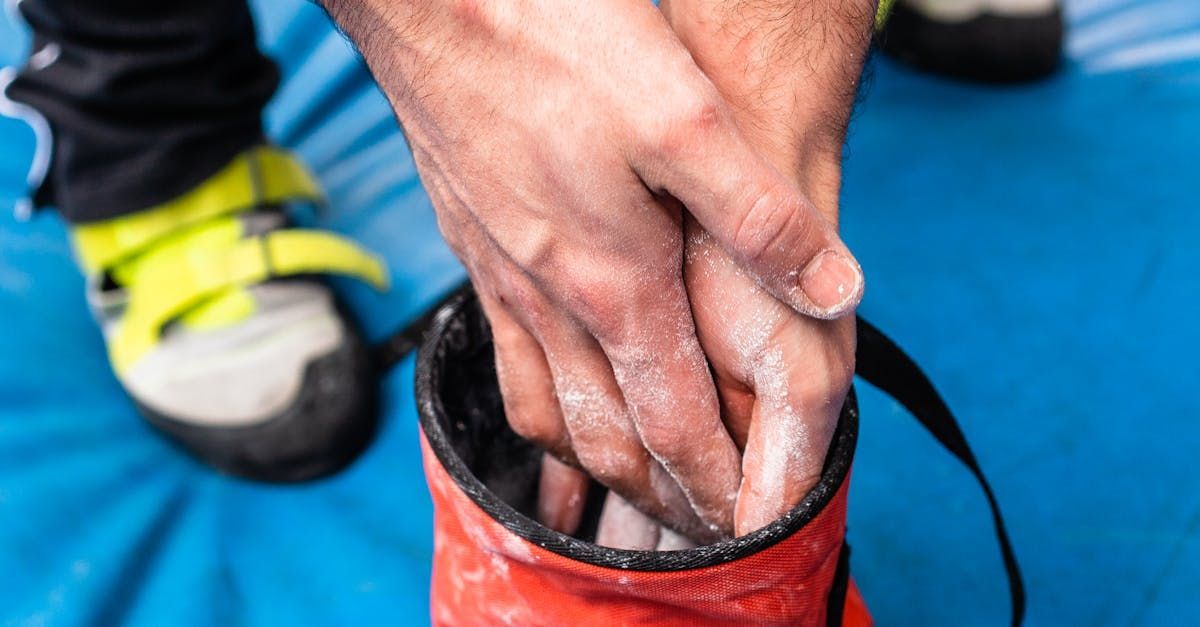
By Xavier Santos
•
February 17, 2025
Exercise is essential for maintaining overall health, but it’s important to prioritize safety to prevent injuries and ensure a sustainable fitness routine. Whether you’re a seasoned athlete or just starting your fitness journey, following proper safety guidelines can help you stay injury-free and enjoy the benefits of exercise for years to come. In this blog post, we’ll explore practical tips and strategies for exercising safely at any age, regardless of fitness level or experience. Understanding Exercise Safety: 1. Warm-Up and Cool Down: Begin each workout with a dynamic warm-up to increase blood flow, loosen muscles, and prepare your body for exercise. Incorporate stretching exercises at the end of your workout to promote flexibility and aid in muscle recovery. 2. Listen to Your Body: Pay attention to warning signs such as pain, discomfort, or fatigue during exercise. If something doesn’t feel right, modify or stop the activity immediately to prevent further injury. 3. Use Proper Form and Technique: Focus on maintaining proper posture and alignment during exercise to minimize the risk of strain or injury. Seek guidance from a qualified fitness professional to learn correct exercise techniques and form. 4. Gradually Increase Intensity: Avoid sudden increases in workout intensity or duration, as this can lead to overuse injuries or burnout. Progressively overload your workouts by gradually increasing resistance, volume, or intensity over time. 5. Cross-Train: Incorporate a variety of exercises and activities into your fitness routine to prevent overuse injuries and promote balanced muscle development. Mix cardio, strength training, flexibility, and mobility exercises for a well-rounded workout regimen. 6. Stay Hydrated: Drink plenty of water before, during, and after exercise to maintain proper hydration levels and support optimal performance. Monitor your fluid intake, especially during intense or prolonged workouts in hot or humid conditions. 7. Wear Appropriate Gear: Invest in supportive and properly fitting athletic shoes, clothing, and equipment suitable for your chosen activities. Replace worn-out shoes or equipment regularly to avoid injury. 8. Rest and Recovery: Allow adequate time for rest and recovery between workouts to prevent overtraining and promote muscle repair and growth. Listen to your body’s signals and prioritize sleep, nutrition, and stress management for optimal recovery. 9. Modify as Needed: Be willing to modify your workout routine based on changes in fitness level, health status, or personal circumstances. Adapt exercises, intensity, or duration as needed to accommodate injuries, illnesses, or other limitations. 10. Seek Professional Guidance: Consult with a qualified fitness professional, such as a certified personal trainer, physical therapist, or exercise physiologist, for personalized guidance and support in designing a safe and effective exercise program tailored to your individual needs and goals. Exercise safety is paramount for preventing injuries and maximizing the benefits of physical activity at any age. By following these practical tips and strategies, you can reduce the risk of exercise-related injuries and create a safe and sustainable fitness routine that supports your health and well-being. Remember to prioritize proper warm-up, form, hydration, rest, and recovery, and listen to your body’s signals to ensure a safe and enjoyable exercise experience. With a commitment to safety and consistency, you can achieve your fitness goals and maintain an active and healthy lifestyle for years to come. Best regards, Xavier Santos, Founder of Athletixism
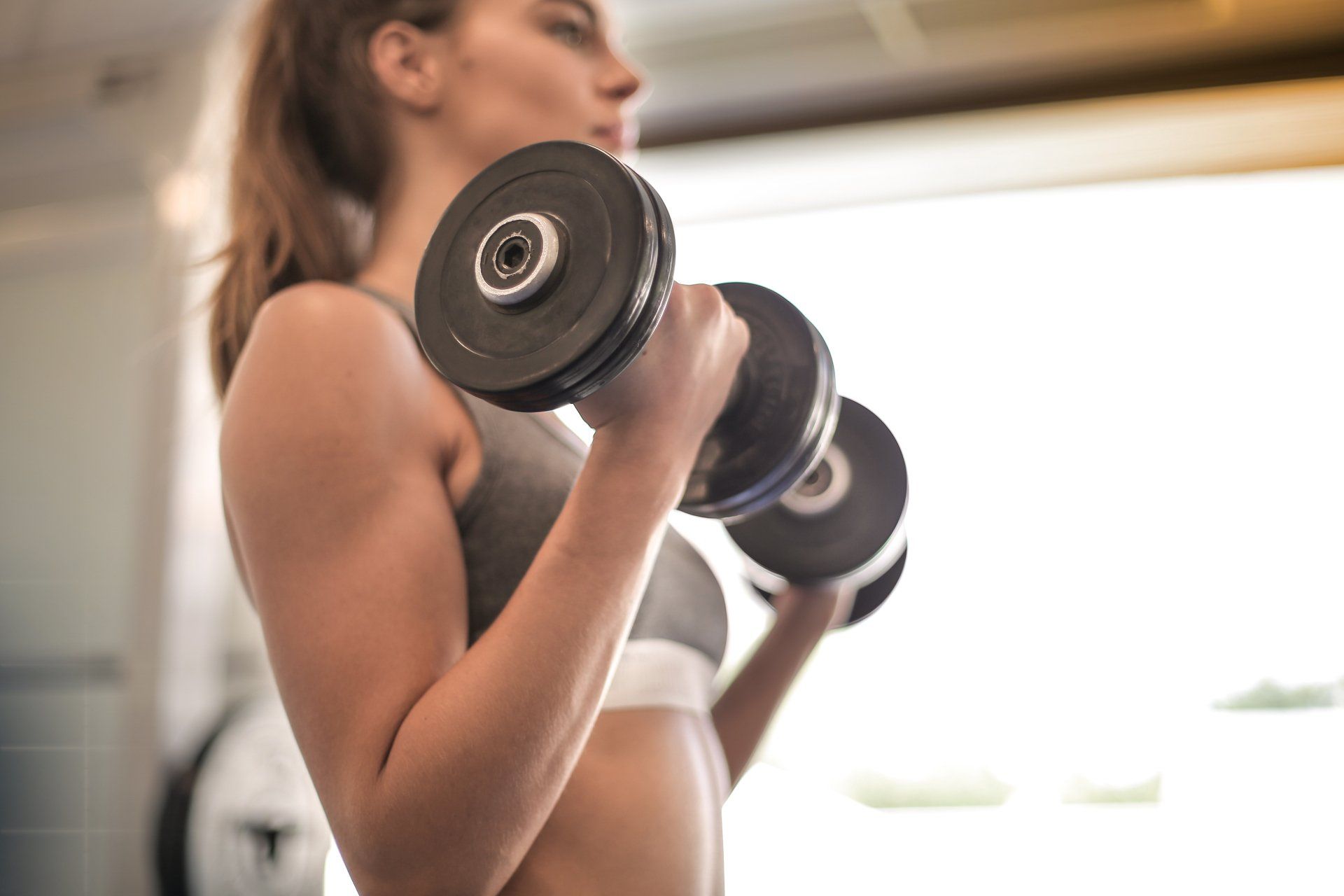
By Xavier Santos
•
February 10, 2025
Strength training, once primarily associated with male bodybuilders and athletes, has gained popularity among women in recent years. However, despite its numerous benefits, there are still misconceptions and myths surrounding strength training for women. In this blog post, we’ll debunk common myths, explore the benefits of lifting weights for women, and empower women to embrace strength training as an integral part of their fitness journey. Dispelling Common Myths: 1. Myth: Strength training will make women bulky. Reality: Contrary to popular belief, strength training does not automatically lead to bulky muscles in women. Women have lower levels of testosterone than men, making it difficult to achieve significant muscle mass without specific training and nutrition protocols. 2. Myth: Cardio is more effective for weight loss than strength training. Reality: While cardiovascular exercise is important for overall health and calorie burning, strength training plays a crucial role in building lean muscle mass, increasing metabolism, and promoting fat loss. Combining both cardio and strength training yields optimal results for weight management. 3. Myth: Women should only focus on light weights and high repetitions. Reality: Women can benefit from lifting heavy weights and performing lower repetitions, just like men. Progressive overload, the principle of gradually increasing resistance over time, is key to building strength and muscle definition regardless of gender. 4. Myth: Strength training is not safe for women, especially during pregnancy. Reality: When performed with proper technique and under the guidance of a qualified trainer, strength training is safe and beneficial for pregnant women. It can help maintain muscle tone, support posture, and alleviate discomfort associated with pregnancy. 5. Myth: Older women should avoid strength training to prevent injury. Reality: Strength training is especially important for older women to maintain bone density, muscle mass, and functional independence. With proper supervision and modifications, strength training can be safe and effective for women of all ages. Benefits of Strength Training for Women: 1. Increased Strength and Muscle Tone: Regular strength training helps women build muscle strength, enhance muscular endurance, and improve overall body composition, resulting in a toned and defined physique. 2. Enhanced Metabolism: Building lean muscle mass through strength training increases resting metabolic rate, allowing women to burn more calories at rest and during physical activity. 3. Improved Bone Health: Weight-bearing exercises such as squats, lunges, and deadlifts stimulate bone remodeling and help prevent osteoporosis, especially important for women at risk of bone loss. 4. Better Functional Movement: Strength training improves joint stability, flexibility, and range of motion, reducing the risk of injury and enhancing everyday activities such as lifting, bending, and reaching. 5. Enhanced Mental Well-Being: Strength training releases endorphins, neurotransmitters that promote feelings of happiness and reduce stress, anxiety, and depression in women. 6. Empowerment and Confidence: Achieving strength and fitness goals through consistent strength training empowers women, boosts self-esteem, and fosters a sense of accomplishment and resilience. Empowering Women to Lift Weights: 1. Educate Yourself: Learn about the principles of strength training, proper exercise technique, and the benefits of lifting weights for women to dispel myths and misconceptions. 2. Start Slowly: Begin with lighter weights and focus on mastering proper form and technique before progressing to heavier loads. 3. Set Realistic Goals: Establish specific, achievable, and measurable fitness goals to guide your strength training program and track your progress over time. 4. Seek Support and Guidance: Work with a qualified personal trainer or strength coach who specializes in women’s fitness to design a safe and effective strength training program tailored to your individual needs and goals. 5. Embrace the Journey: Understand that progress takes time and consistency, and celebrate small victories along the way. Focus on the process of self-improvement and enjoy the physical and mental benefits of strength training. 6. Encourage Others: Share your experiences, knowledge, and enthusiasm for strength training with other women to inspire and empower them to prioritize their health and fitness journey. Strength training is a powerful tool for women to build strength, confidence, and resilience, yet many still hesitate to incorporate it into their fitness routine due to lingering myths and misconceptions. By dispelling common myths, highlighting the benefits, and empowering women to lift weights, we can help women overcome barriers, embrace strength training, and achieve their health and fitness goals. Remember, strength knows no gender, and every woman has the potential to become stronger, healthier, and more empowered through strength training. Best regards, Xavier Santos, Founder of Athletixism
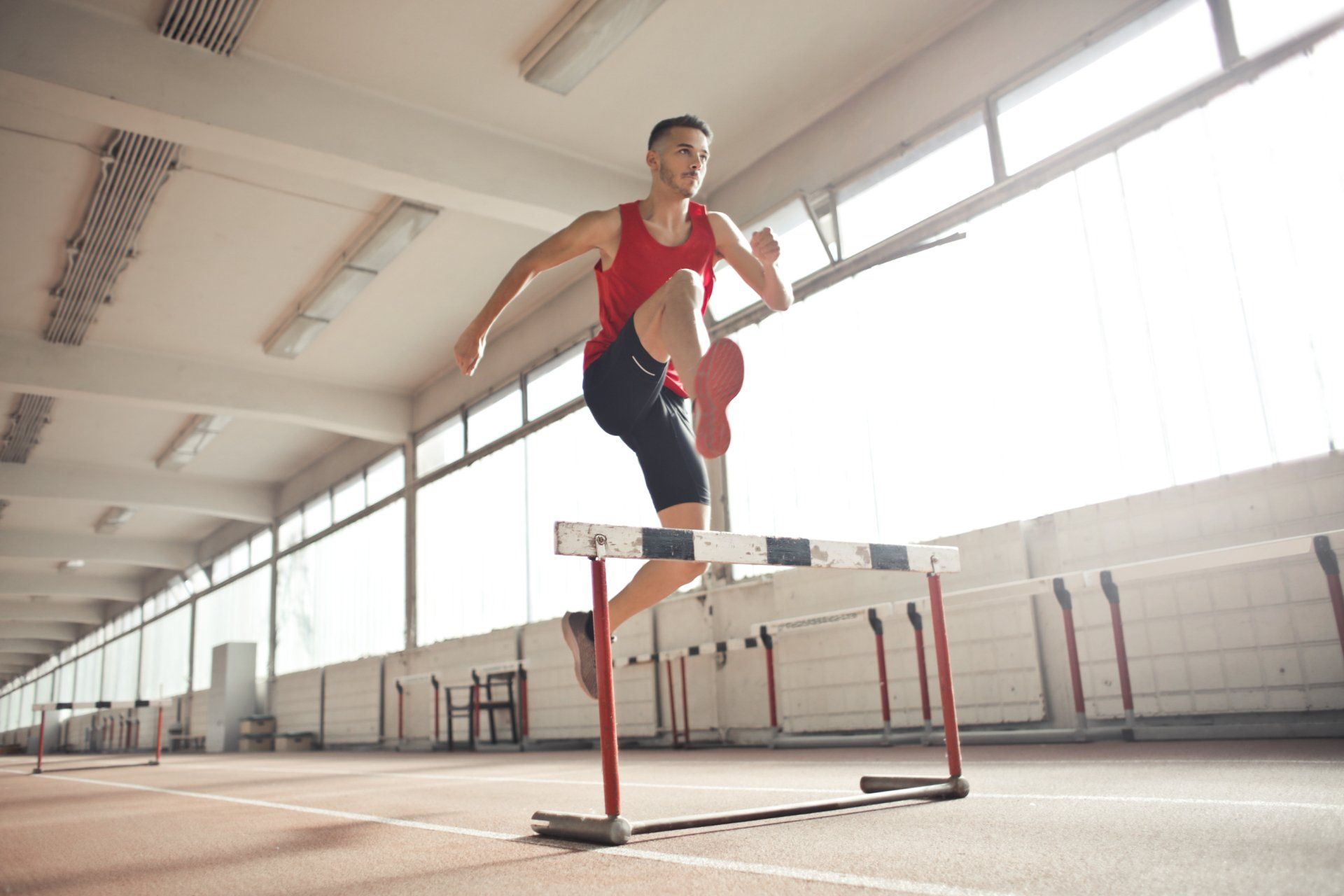
By Xavier Santos
•
February 3, 2025
Maintaining consistent exercise habits can be challenging, especially when faced with obstacles, distractions, or periods of low motivation. Whether you’re just starting your fitness journey or striving to break through a plateau, finding inspiration and staying motivated to exercise is essential for long-term success. In this blog post, we’ll explore strategies for cultivating exercise motivation, overcoming common workout plateaus, and staying committed to your fitness goals. Understanding Exercise Motivation: Exercise motivation refers to the drive, desire, and determination to engage in physical activity regularly. It encompasses both intrinsic factors, such as personal enjoyment, satisfaction, and sense of accomplishment, as well as extrinsic factors, such as social support, external rewards, and goal attainment. Motivation plays a crucial role in initiating and sustaining exercise behavior, influencing adherence, consistency, and performance in workouts. Common Challenges to Exercise Motivation: 1. Lack of Time: Busy schedules, work commitments, and family responsibilities can make it challenging to prioritize exercise and find time for workouts. 2. Boredom and Monotony: Doing the same workouts repeatedly or following a monotonous exercise routine can lead to boredom and lack of motivation. 3. Plateaus and Progress Stalls: Hitting a plateau or experiencing a lack of progress in fitness goals can be demotivating and frustrating. 4. Negative Self-Talk: Self-doubt, criticism, and comparison to others can undermine confidence and motivation to exercise. 5. External Stressors: Life events, work-related stress, and external pressures can impact mood, energy levels, and motivation to engage in physical activity. Strategies for Cultivating Exercise Motivation: 1. Set Clear and Specific Goals: Establish realistic, achievable, and measurable fitness goals that provide direction, focus, and motivation for your workouts. 2. Find Your Why: Identify your intrinsic motivations for exercising, such as improving health, boosting energy, reducing stress, or pursuing personal growth and self-improvement. 3. Mix Up Your Routine: Keep workouts fresh and engaging by trying new activities, exploring different exercise modalities, and varying intensity, duration, and frequency. 4. Create Accountability: Partner with a workout buddy, join a fitness class, or hire a personal trainer to hold you accountable, provide support, and keep you motivated. 5. Track Your Progress: Keep a workout journal, use fitness apps or wearable devices, and track your progress over time to celebrate successes and stay motivated. 6. Reward Yourself: Set up rewards and incentives for reaching milestones and achieving fitness goals, such as treating yourself to a massage, buying new workout gear, or enjoying a healthy meal. 7. Practice Self-Compassion: Be kind to yourself, embrace imperfection, and focus on progress rather than perfection to maintain a positive mindset and motivation to exercise. 8. Visualize Success: Use visualization techniques to imagine yourself achieving your fitness goals, overcoming challenges, and experiencing the benefits of regular exercise. 9. Seek Social Support: Surround yourself with supportive friends, family members, or workout partners who share your fitness goals and can provide encouragement, motivation, and accountability. 10. Stay Flexible and Adapt: Be willing to adapt your workout plans, adjust goals, and modify your approach based on changing circumstances, preferences, and needs. Overcoming Workout Plateaus: 1. Change Up Your Routine: Introduce new exercises, modify intensity or volume, and experiment with different training techniques to challenge your body and break through plateaus. 2. Increase Intensity: Gradually increase the intensity of your workouts by adding resistance, increasing speed, or reducing rest intervals to stimulate muscle growth and improve fitness levels. 3. Focus on Weaknesses: Identify areas of weakness or imbalance in your fitness routine and prioritize exercises that target those areas to improve overall strength, stability, and performance. 4. Incorporate Periodization: Implement periodization principles by cycling through phases of training that vary in intensity, volume, and focus to prevent stagnation and optimize progress. 5. Rest and Recovery: Prioritize rest, recovery, and proper nutrition to allow your body to repair, regenerate, and adapt to the demands of exercise, reducing the risk of burnout and overtraining. 6. Stay Patient and Persistent: Understand that progress takes time and consistency, and embrace the journey of self-improvement, staying committed to your fitness goals despite setbacks or challenges. Exercise motivation is a key determinant of success in achieving and maintaining a regular fitness routine. By implementing strategies to cultivate intrinsic motivation, overcome common obstacles, and stay committed to your goals, you can harness the power of exercise to enhance your physical health, mental well-being, and overall quality of life. Remember to stay flexible, adapt to changing circumstances, and celebrate progress along the way, recognizing that every step forward is a victory on your fitness journey. Best regards, Xavier Santos, Founder of Athletixism

By Xavier Santos
•
January 27, 2025
Maintaining optimal joint health and mobility is essential for overall well-being and functional movement. Whether you’re an athlete looking to enhance performance or someone seeking to prevent injury and maintain independence as you age, incorporating exercises that improve joint mobility and range of motion is crucial. In this blog post, we’ll explore the importance of functional mobility, its impact on daily life and physical performance, and provide a comprehensive guide to exercises designed to enhance joint health and flexibility. The Importance of Functional Mobility: Functional mobility refers to the ability to move freely and efficiently through a full range of motion without pain or restriction. It encompasses the flexibility, stability, and strength of the joints, muscles, and connective tissues that enable smooth and coordinated movement in everyday activities and sports. Optimal joint mobility is essential for performing tasks such as bending, reaching, squatting, and lifting with ease, as well as for preventing injuries and maintaining overall physical function as we age. Benefits of Improved Joint Mobility: 1. Enhanced Performance: Improved joint mobility allows for greater efficiency and effectiveness in movement patterns, leading to enhanced athletic performance and sports-specific skills. 2. Reduced Risk of Injury: By increasing flexibility and range of motion, functional mobility exercises help to prevent strains, sprains, and other common injuries associated with tight or restricted joints. 3. Better Posture and Alignment: Maintaining optimal joint mobility promotes proper posture and alignment, reducing the risk of musculoskeletal imbalances and postural issues that can lead to pain and discomfort. 4. Increased Functional Independence: Improved joint mobility enhances the ability to perform activities of daily living independently, such as bending, reaching, and lifting, promoting overall quality of life and functional independence. 5. Pain Relief: Stretching and mobilizing tight or stiff joints can alleviate muscular tension and reduce joint pain, improving overall comfort and mobility. Exercises to Improve Joint Mobility: 1. Dynamic Warm-Up: Incorporate dynamic stretches and movements such as arm circles, leg swings, and trunk rotations to increase blood flow, warm up the muscles, and prepare the joints for activity. 2. Foam Rolling: Use a foam roller to target tight muscles and fascia, applying gentle pressure to release tension and improve mobility in areas such as the calves, quadriceps, hamstrings, and back. 3. Joint Mobilization Exercises: Perform controlled movements that gently mobilize the joints through their full range of motion, focusing on areas of stiffness or restriction such as the shoulders, hips, spine, and ankles. 4. Static Stretching: Hold static stretches for 20-30 seconds, focusing on major muscle groups such as the quadriceps, hamstrings, calves, chest, shoulders, and back, to improve flexibility and joint mobility. 5. Yoga and Pilates: Participate in yoga or Pilates classes that emphasize stretching, mobility, and body awareness, incorporating poses and movements that target joint mobility and flexibility. 6. Resistance Band Exercises: Use resistance bands to perform exercises that target specific muscle groups and joints, such as band pull-aparts for shoulder mobility, band walks for hip stability, and leg lifts for ankle mobility. 7. Balance and Stability Training: Practice balance exercises such as single-leg stands, stability ball exercises, and proprioceptive drills to improve joint stability and control, reducing the risk of falls and injury. 8. Tai Chi and Qigong: Explore mind-body practices such as Tai Chi and Qigong, which combine gentle movements, breathing techniques, and meditation to promote relaxation, balance, and joint mobility. 9. Functional Movement Patterns: Incorporate functional movement exercises such as squats, lunges, hinges, pushes, pulls, and twists into your workouts, focusing on proper form and alignment to improve joint mobility and functional strength. 10. Consistency and Progression: Perform mobility exercises regularly, gradually increasing intensity, duration, and range of motion over time to continually challenge and improve joint mobility and flexibility. Functional mobility is essential for maintaining joint health, preventing injury, and optimizing physical performance in daily life and athletic pursuits. By incorporating a variety of mobility exercises into your fitness routine and prioritizing proper movement mechanics, you can enhance joint health, flexibility, and overall functional capacity. Remember to listen to your body, progress gradually, and prioritize consistency in your mobility training regimen to reap the full benefits of improved joint mobility and range of motion. Best regards, Xavier Santos, Founder of Athletixism
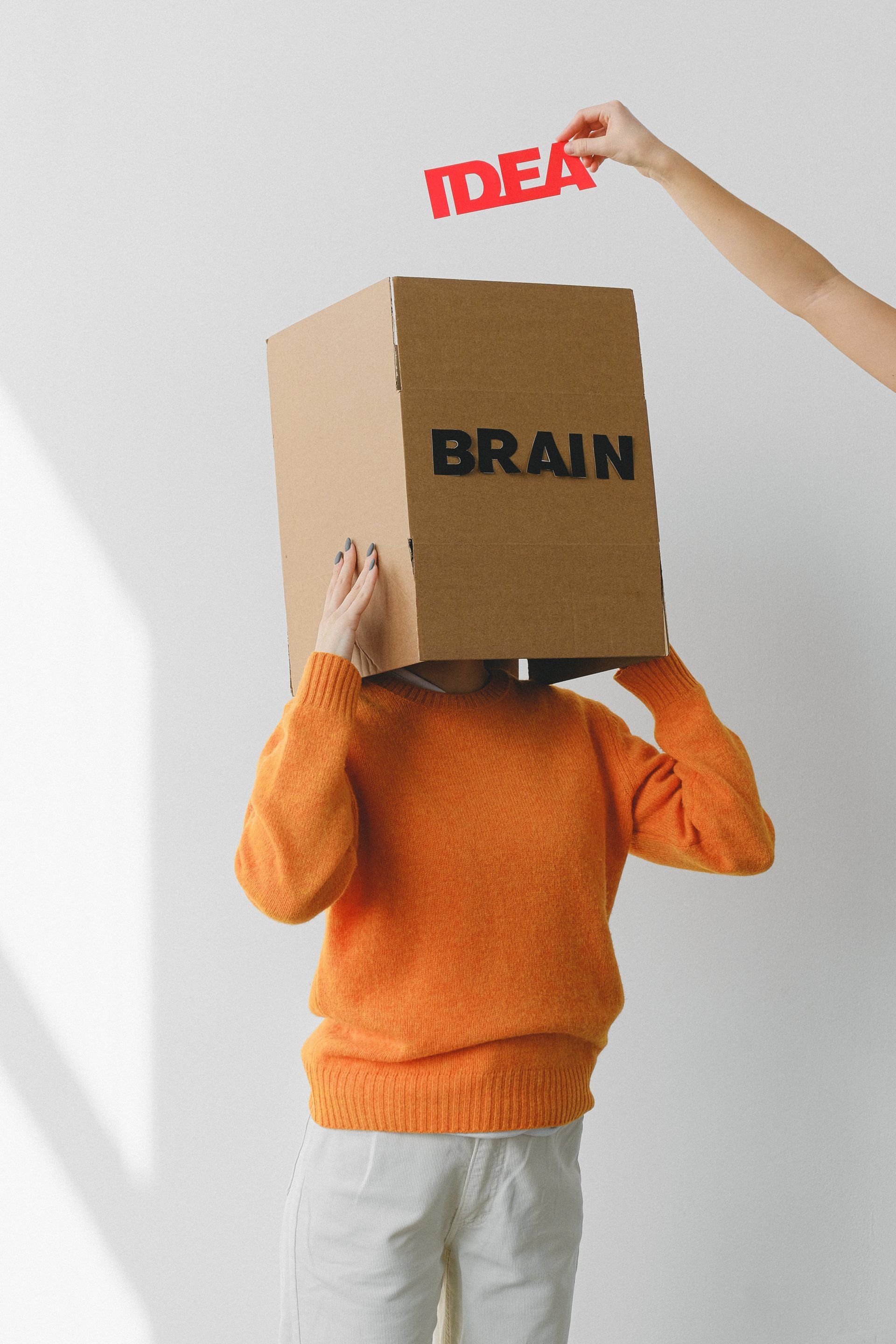
By Xavier Santos
•
January 20, 2025
In the pursuit of any goal, whether it’s achieving fitness milestones or navigating life’s challenges, mental toughness plays a crucial role in determining success. Mental toughness is the ability to persevere, stay focused, and bounce back from setbacks with resilience and determination. In this blog post, we’ll explore the concept of mental toughness, its significance in both fitness and life, and strategies for developing resilience to overcome obstacles and achieve your goals. Understanding Mental Toughness: Mental toughness encompasses a range of psychological skills and attributes that enable individuals to thrive in the face of adversity. It involves maintaining a positive mindset, staying resilient in the face of challenges, and having the grit and determination to pursue goals despite obstacles. Mental toughness is not about being invincible or immune to failure but rather about embracing setbacks as learning opportunities and continuing to move forward with resilience and perseverance. The Significance of Mental Toughness in Fitness: In the realm of fitness, mental toughness is essential for achieving long-term success and maintaining consistency in training. It enables individuals to push through physical discomfort, overcome plateaus, and stay committed to their fitness journey even when faced with obstacles such as injury, fatigue, or lack of motivation. Mental toughness empowers individuals to set challenging goals, stay focused on their objectives, and maintain the discipline and dedication required to achieve them. Developing Resilience in Life: Beyond fitness, mental toughness is equally important in navigating life’s challenges and adversities. Whether it’s facing career setbacks, relationship issues, or personal hardships, developing resilience is key to bouncing back stronger and more resilient than before. Resilient individuals are better equipped to cope with stress, adapt to change, and persevere in the face of setbacks, ultimately leading to greater overall well-being and life satisfaction. Strategies for Building Mental Toughness: 1. Cultivate a Growth Mindset: Embrace challenges as opportunities for growth and view setbacks as temporary setbacks rather than insurmountable obstacles. 2. Set Clear Goals: Establish clear, achievable goals that align with your values and aspirations, and break them down into manageable steps to maintain focus and motivation. 3. Practice Positive Self-Talk: Replace negative self-talk with positive affirmations and encouragement, fostering a resilient mindset and belief in your ability to overcome challenges. 4. Develop Coping Strategies: Build a toolkit of coping strategies such as deep breathing, mindfulness meditation, and visualization techniques to manage stress and maintain emotional resilience. 5. Seek Support: Surround yourself with a supportive network of friends, family, mentors, and coaches who can provide encouragement, guidance, and perspective during difficult times. 6. Embrace Failure: Reframe failures as learning opportunities and opportunities for growth, recognizing that setbacks are an inevitable part of the journey toward success. 7. Stay Flexible: Adapt to changing circumstances and setbacks by remaining flexible and open to new approaches, strategies, and solutions. 8. Focus on What You Can Control: Direct your energy and efforts toward aspects of your life and fitness journey that you can control, rather than dwelling on factors beyond your control. 9. Celebrate Progress: Acknowledge and celebrate small victories and milestones along the way, reinforcing your sense of achievement and progress toward your goals. 10. Practice Resilience Daily: Cultivate resilience as a daily habit by incorporating mindfulness, gratitude, and self-care practices into your routine, nurturing your mental and emotional well-being. Mental toughness is a fundamental attribute that empowers individuals to overcome adversity, achieve their goals, and thrive in both fitness and life. By cultivating resilience, embracing challenges, and developing a growth mindset, you can build the mental fortitude needed to navigate setbacks, persevere in the face of obstacles, and ultimately realize your full potential. Remember that mental toughness is not an innate trait but a skill that can be developed and strengthened over time through practice, perseverance, and a commitment to growth. Best regards, Xavier Santos, Founder of Athletixism
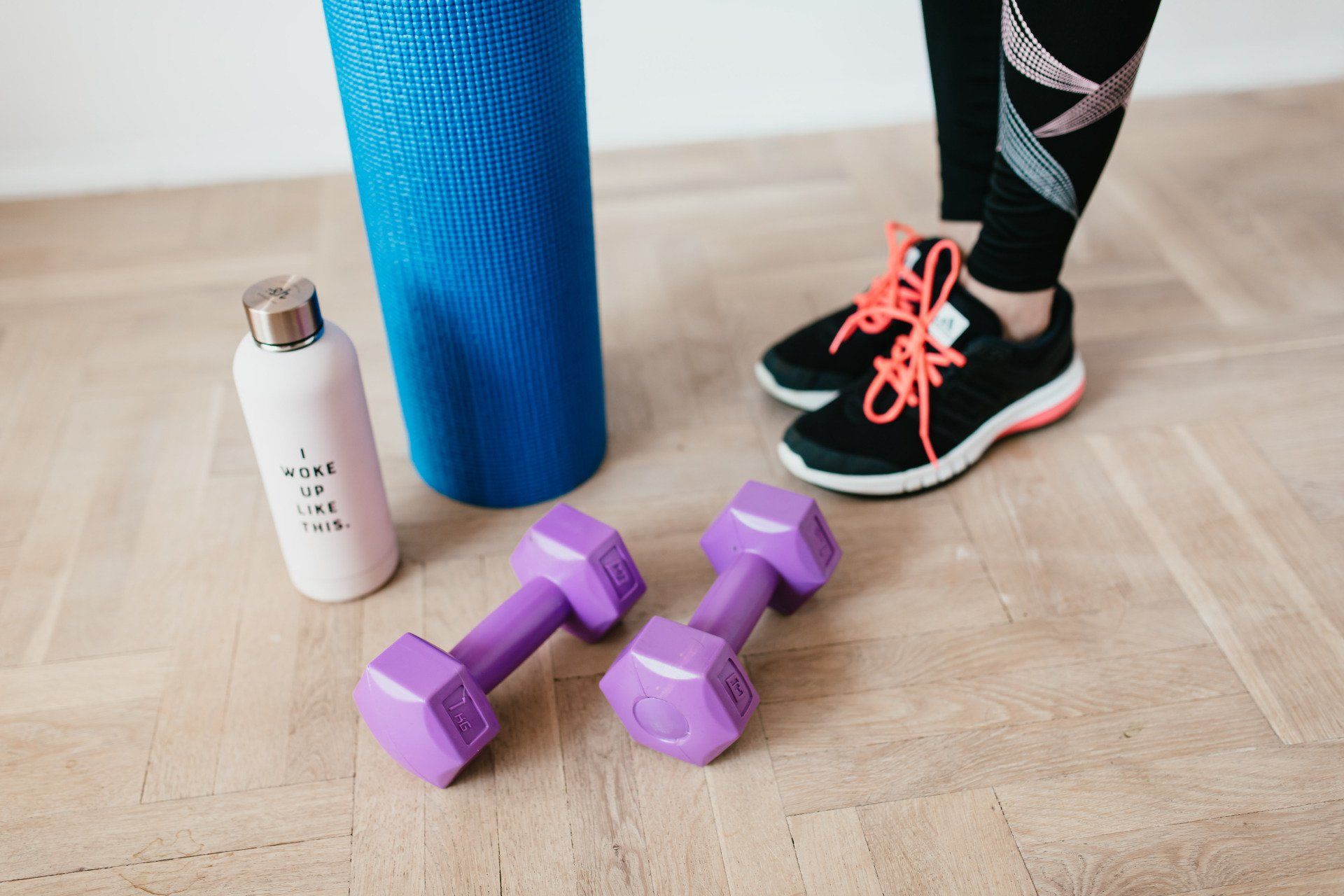
By Xavier Santos
•
January 13, 2025
With the increasing popularity of home workouts, creating a functional and efficient home gym has become a priority for many fitness enthusiasts. Whether you’re short on space or budget, having the right equipment can make a significant difference in the effectiveness and enjoyment of your workouts. In this blog post, we’ll explore essential equipment for setting up a home gym that caters to a variety of fitness goals, preferences, and workout styles. 1. Adjustable Dumbbells: Adjustable dumbbells are versatile and space-saving alternatives to traditional dumbbell sets. They allow you to adjust the weight incrementally, making them suitable for a wide range of exercises, from bicep curls and shoulder presses to lunges and chest presses. Look for adjustable dumbbells with quick-change mechanisms for seamless weight adjustments. 2. Resistance Bands: Resistance bands are lightweight, portable, and versatile tools for strength training, mobility work, and rehabilitation exercises. They come in various resistance levels, making them suitable for individuals of all fitness levels. Incorporate resistance bands into your workouts to target specific muscle groups, improve range of motion, and add variety to your training routine. 3. Stability Ball: A stability ball, also known as an exercise or Swiss ball, is an excellent tool for core training, balance exercises, and stretching. It can be used to perform a wide range of exercises, including crunches, planks, bridges, and stability ball rollouts. Choose a stability ball that is properly sized for your height and weight to ensure optimal stability and safety during exercises. 4. Yoga Mat: A high-quality yoga mat provides cushioning, support, and traction for yoga, Pilates, stretching, and bodyweight exercises. Look for a yoga mat with sufficient thickness and durability to protect your joints and provide a comfortable workout surface. Opt for a non-slip surface to prevent the mat from sliding during intense workouts. 5. Kettlebells: Kettlebells are versatile strength training tools that combine cardiovascular conditioning with resistance training. They can be used for swings, deadlifts, squats, lunges, and a variety of other dynamic exercises. Invest in a set of kettlebells in different weights to accommodate various exercises and fitness levels. 6. Foam Roller: A foam roller is an essential recovery tool for self-myofascial release and muscle relaxation. It helps alleviate muscle tightness, improve flexibility, and reduce the risk of injury by releasing tension and knots in the muscles. Incorporate foam rolling into your post-workout routine to promote faster recovery and enhance muscle performance. 7. Jump Rope: A jump rope is a simple yet effective cardiovascular tool for improving agility, coordination, and endurance. It provides a high-intensity, low-impact workout that can be customized to suit your fitness level and goals. Jump ropes are compact and portable, making them ideal for home workouts and travel. 8. Pull-Up Bar: A pull-up bar is a versatile piece of equipment for upper body and core strength training. It allows you to perform various pull-up and chin-up variations to target different muscle groups, including the back, arms, and shoulders. Choose a pull-up bar that can be mounted securely to a door frame or wall for safe and effective workouts. 9. Adjustable Bench: An adjustable bench adds versatility to your home gym setup, allowing you to perform a wide range of exercises, including bench presses, incline presses, seated rows, and step-ups. Look for a sturdy and adjustable bench that offers multiple incline positions for targeting different muscle groups and accommodating various exercises. 10. Fitness Tracker: A fitness tracker or smartwatch can help you monitor your progress, track workouts, and stay motivated to reach your fitness goals. Choose a device with features such as heart rate monitoring, activity tracking, GPS tracking, and workout metrics to monitor your performance and progress over time. Creating a functional home gym doesn’t require a massive investment or a dedicated workout space. By selecting versatile and essential equipment that aligns with your fitness goals and preferences, you can build an effective home workout space that caters to your needs. Whether you’re focusing on strength training, cardiovascular conditioning, flexibility, or rehabilitation, having the right tools at your disposal can help you achieve your fitness goals and maintain a consistent workout routine from the comfort of your home. Best regards, Xavier Santos, Founder of Athletixism

By Xavier Santos
•
January 6, 2025
Exercise-related injuries are common among individuals engaged in physical activity, ranging from minor sprains and strains to more severe injuries requiring rehabilitation. Whether you’re an athlete, fitness enthusiast, or occasional exerciser, understanding injury rehabilitation strategies is essential for promoting recovery, preventing re-injury, and maintaining long-term fitness goals. In this blog post, we’ll explore effective strategies for recovering from workout injuries and preventing future injuries through proactive measures and smart training practices. Understanding Workout Injuries: Workout injuries can occur due to various factors, including overuse, improper form, inadequate warm-up or cool-down, muscular imbalances, and insufficient recovery time between workouts. Common workout injuries include sprains, strains, tendonitis, muscle tears, stress fractures, and joint dislocations. While some injuries may heal with rest and conservative treatment, others may require more extensive rehabilitation and medical intervention. Rehabilitation Strategies: 1. Seek professional guidance: If you sustain a workout injury, consult with a qualified healthcare professional, such as a physical therapist or sports medicine physician, for accurate diagnosis and personalized treatment recommendations. 2. Follow the RICE protocol: For acute injuries, follow the RICE protocol – Rest, Ice, Compression, and Elevation – to reduce pain, inflammation, and swelling in the affected area. 3. Gradual return to activity: Gradually reintroduce physical activity and exercise once the injured area has healed sufficiently, starting with low-impact activities and gradually increasing intensity and duration over time. 4. Focus on mobility and flexibility: Incorporate stretching, foam rolling, and mobility exercises to improve flexibility, range of motion, and joint function, reducing the risk of future injuries. 5. Strengthen weakened muscles: Target specific muscle groups affected by injury through targeted strength training exercises to rebuild strength, stability, and muscle balance. 6. Address underlying imbalances: Address any underlying biomechanical imbalances or movement dysfunctions contributing to injury risk through corrective exercises and functional movement training. 7. Listen to your body: Pay attention to pain, discomfort, or signs of overexertion during exercise and modify activities accordingly to avoid exacerbating the injury or causing additional harm. 8. Cross-train and vary activities: Incorporate a variety of low-impact and cross-training activities into your fitness routine to reduce repetitive stress on joints and muscles and prevent overuse injuries. 9. Focus on proper technique: Emphasize proper form and technique during exercise to minimize the risk of injury and maximize effectiveness, particularly when performing high-intensity or complex movements. 10. Prioritize rest and recovery: Allow adequate time for rest and recovery between workouts to facilitate tissue repair, muscle growth, and overall recovery, preventing overtraining and burnout. Prevention Strategies: 1. Warm-up and cool-down: Perform dynamic warm-up exercises before exercise to increase blood flow, mobility, and muscle readiness, and incorporate static stretching and foam rolling during the cool-down to promote muscle relaxation and recovery. 2. Progressive overload: Gradually increase the intensity, duration, and frequency of workouts to avoid sudden spikes in training volume and reduce the risk of overuse injuries. 3. Wear appropriate footwear and gear: Choose footwear and workout gear that provide adequate support, cushioning, and stability for your chosen activities, reducing the risk of foot, ankle, and lower extremity injuries. 4. Hydrate and nourish your body: Stay hydrated before, during, and after exercise, and fuel your body with a balanced diet rich in nutrients to support muscle recovery, energy production, and overall health. 5. Listen to your body: Pay attention to early warning signs of injury, such as persistent pain, discomfort, or reduced performance, and address them promptly to prevent worsening or recurrence of the injury. 6. Incorporate rest and recovery: Include rest days and active recovery activities in your training schedule to prevent overtraining, promote recovery, and reduce the risk of burnout and injury. 7. Cross-train and vary workouts: Incorporate a variety of exercises, activities, and training modalities into your routine to avoid overuse injuries, prevent boredom, and maintain overall fitness and athleticism. 8. Get adequate sleep: Prioritize quality sleep and aim for 7-9 hours of restorative sleep per night to support recovery, hormone regulation, and overall physical and mental well-being. 9. Manage stress: Practice stress management techniques such as meditation, deep breathing, yoga, and mindfulness to reduce stress levels, improve mood, and enhance resilience to injury. 10. Stay informed and educated: Stay updated on the latest research, training techniques, and injury prevention strategies to make informed decisions about your fitness regimen and reduce the risk of injury. Injury rehabilitation is a crucial aspect of fitness and exercise, allowing individuals to recover from injuries, regain function, and return to physical activity safely. By following effective rehabilitation strategies and implementing proactive injury prevention measures, you can minimize the risk of workout injuries, optimize performance, and enjoy the benefits of an active and healthy lifestyle for years to come. Remember to prioritize safety, listen to your body, and seek professional guidance when needed to ensure a successful recovery and long-term fitness success. Best regards, Xavier Santos, Founder of Athletixism